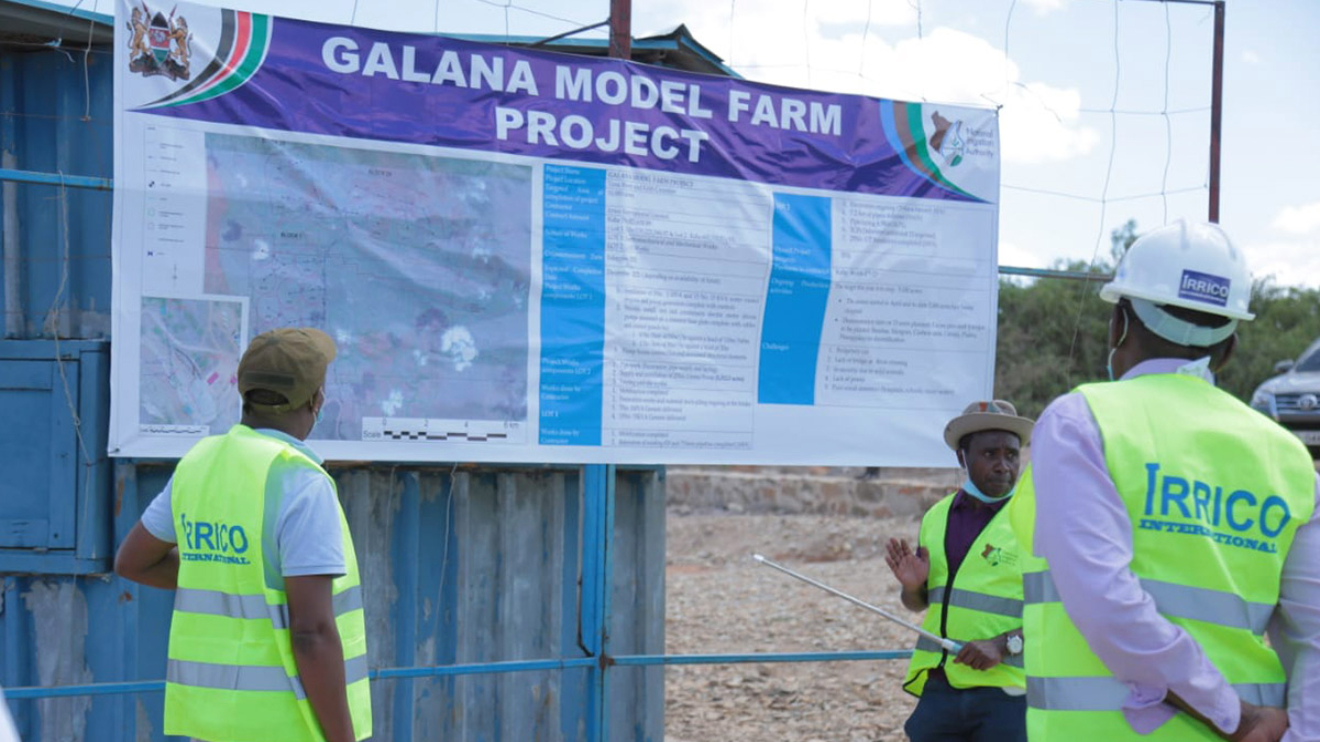In a strategic move aimed at maximizing the impact of the Galana Kulalu Food Security Project and accelerating its positive influence on the Kenyan agricultural landscape, Twiga Foods Limited has officially announced the transfer of its rights to the development of the project to Selu Limited.
Selu, a Special Purpose Vehicle, is a partnership consisting of various companies, including Campos, a farm management company with vast experience overseeing extensive farmland in Latin America with a climate similar to Kenya, and AgCo, a global leader in precision agriculture technology based in the United States.
Expressing confidence in Selu Limited, Twiga Foods Managing Director, Peter Njonjo, stated it is their belief that Selu is the best organisation best poised to manage the project's next stage.
"We believe that Selu Limited is the best fit to manage the next stage of the project, which is to develop it further, manage, and then operate it," Njonjo said.
This strategic move marks a significant step towards maximizing the impact of Galana Kulalu and accelerating its positive impact on the Kenyan agricultural landscape."
Read More
Currently, Selu is undertaking the Development Phase, covering 500 acres and targeting a yield of above 9 metric tons per hectare, a remarkable 4.5 times higher than the Kenyan average yield.
Kenya's average maize yield per hectare stands at approximately 2 metric tons, while the global average ranges from 5 to 6 metric tons.
Previous trials at the Galana Kulalu farm have yielded around 7.2 metric tons per hectare.
Yvonne Okafor, responsible for managing the development phase at Selu, expressed enthusiasm for the move and pledged their commitment to implementing innovative strategies and leveraging infrastructure for the optimisation of efficiency and productivity.
"We are delighted to be entrusted with the responsibility of developing the Galana-Kulalu farm project, which will be Kenya's most significant maize producer. We are committed to implementing innovative strategies and leveraging state-of-the-art infrastructure to optimize efficiency and productivity," Okafor said.
"With a strong emphasis on sustainability, Selu aims to positively disrupt the agricultural sector in collaboration with key stakeholders to ensure we make a meaningful impact on food security."
It is worth noting that the Galana-Kulalu project is being developed under a Public-Private Partnership with the Government of Kenya.
The Director-General of Private-Public Partnerships Christopher Kirigua highlighted the government's commitment to fostering PPPs, stating,
"Kenya has a strong Private-Public Partnership framework, which is an enabler for the private sector to identify and grow critical industries that can drive rapid transformation and help the government achieve its commitments to the public. Selu's Project has been delivered through the new PPP framework, which has delivered the private sector investment in a record 3 months."
To ensure optimal yields and produce safe, high-quality maize, Selu has formed partnerships with reputable seed, fertilizer, and other farming input providers.
These collaborations will provide access to high-quality maize seed varieties and fertilizer, enhancing the project's chances of success.
The trial phase is currently underway, with maize planting commencing. Over the next four months, the trial phase will assess the most suitable inputs for the commercial planting phase.
Factors such as maize variety, fertilizer regime, plant spacing and population, crop protection regime, and soil improvement regime will be determined during this phase.
Furthermore, Selu aims to prioritize environmental sustainability by incorporating rotational crops, such as castor oil, which not only reduce the project's carbon footprint but also generate renewable energy from biomass waste.
Selu has set a targeted start date for commercial operations in the fourth quarter of this year.
Initially, the development will focus on the 20,000 acres deemed feasible based on the available water supply from the Galana River throughout the year.
However, as the Government of Kenya moves forward with the development of a dam on the Galana River to capture run-off and maximize irrigation potential, the project's scope will expand to 100,000 acres.
At this scale, the project will generate annual production equivalent to the average maize deficit in Kenya over the last 5 years and contribute to over 10 per cent of the country's annual production.
Selu remains dedicated to implementing an innovative and environmentally conscious approach to project execution, with a strong emphasis on carbon reduction, soil enrichment, and water conservation.
With an unwavering commitment to innovation and environmental consciousness, Selu Limited's Public-Private Partnership Project aligns with Kenya's long-term vision of agricultural development and food security.
This transformative initiative will pave the way for specialized entities like Selu to undertake crucial agricultural industry initiatives, fostering entrepreneurship, innovation, and ultimately reshaping the agricultural landscape in Kenya while contributing to the overall development of the country.







-1757663582.jpeg)
